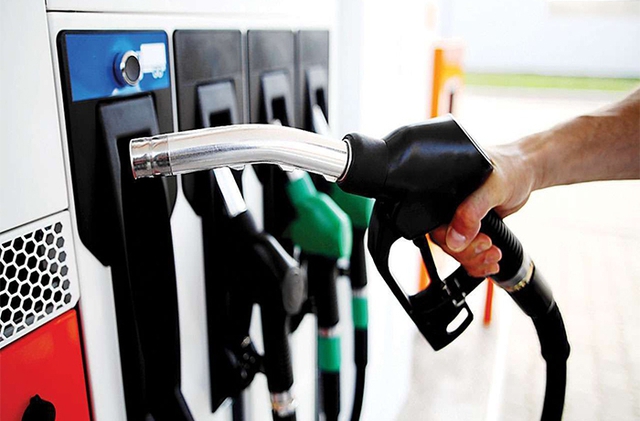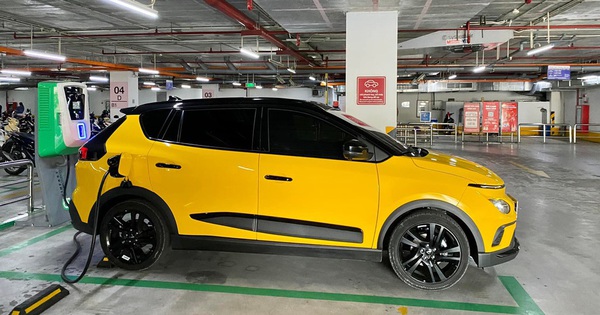Data from the Ministry of Industry and Trade shows that the retail gasoline price on the Singapore market was updated on May 17 with RON 92 at 146.3 USD/barrel; RON 95 gasoline is 150.3 USD/barrel, a sharp increase compared to May 10 (RON 92 gasoline is $138.59/barrel, RON95 gasoline is 142.6 USD/barrel).

Retail gasoline prices in the country may increase for the fourth time in a row due to the recent increase in world oil prices.
According to the leader of a leading petroleum business, the continued increase in world oil prices will push up the price of finished gasoline, causing the retail price of petrol in the country to continue to increase. Accordingly, in this operating period, it is inevitable that gasoline prices will increase.
“How much the increase depends on how the management agency sets up or spends to use the price stabilization fund, but the price of gasoline will exceed 30,000 VND per liter”this person said.
During the operating period on May 11, the Inter-Ministry of Industry, Trade and Finance adjusted gasoline prices in the direction of increasing all gasoline products. Specifically, gasoline E5RON92 increased by 1,491 VND/liter, the retail price was 28,959 VND/liter; RON95 gasoline increased by 1,554 VND/liter, the selling price was not higher than 29,988 VND/liter.
Similarly, the price of diesel oil increased by 1,120 VND/liter, sold at 26,650 VND/liter. Kerosene increased by 1,340 VND/liter, sold at 25,168 VND/liter. Particularly for mazut oil, the price remained unchanged, selling at no higher than VND 21,560/kg (stable compared to the current selling price).
The operator makes an appropriation for BOG Fund for E5 RON92 products at 100 VND/liter (last period was 300 VND/liter) and RON95 at 100 VND/liter (previous period was 400 VND/liter), oil diesel at 100 dong/liter, kerosene stopped making provision (previous period was 119 dong/liter) and fuel oil continued to not make provision.
Expenditure of BOG Fund for kerosene at 300 dong/liter (previous period not spent), madut oil at 33 dong/kg (previous period was not spent), other petroleum products were not spent.
Should reduce more taxes
According to economic expert, Dr. Nguyen Bich Lam, former director of the General Statistics Office, gasoline costs account for about 3.52% of the total production costs of the whole economy. According to calculations, a 10% increase in gasoline prices will reduce GDP by about 0.5% – a rather large reduction, reflecting the very strong impact of gasoline price fluctuations on economic growth.
In addition, the domestic economy is highly dependent on imported raw materials from outside, with the proportion of cost of imported materials in the total cost of raw materials of the whole economy at 37%. When the world gasoline price increases, it will increase the price of imported and domestic raw materials.
In the context that the economy is in need of recovery after a period of stagnation because of the COVID-19 epidemic, if the price of gasoline increases, it will lead to an increase in the price index of all other industries, especially the transportation sector. logictisc…Especially when gasoline prices continue to rise, it will reduce the effectiveness of the fiscal policies being implemented to stimulate consumption demand, stimulate growth and reduce inflationary pressure, leading to failure to achieve the target. spending growth, budget revenue loss, but inflation still increased.
Economist, Assoc. Prof. Dr. Ngo Tri Long shared the same opinion when saying that petroleum is an essential commodity and an input for most production industries. Therefore, when gasoline price increases, it not only directly affects consumers but also negatively affects production and business activities. In the context that the economy is facing many difficulties because of the COVID-19 epidemic, purchasing power is still weak, this price increase will slow down the economic recovery process. The urgent issue now is to quickly restrain the increase in gasoline prices to prevent negative market fluctuations.
“The economy is entering the early stage of recovery, production and business activities have begun to resume. But too high gasoline prices will push input costs of goods, create a burden on business costs, hit people’s pockets, and slow down the recovery of the whole economy. Mr. Long said.
According to Mr. Long, the current domestic gasoline price depends greatly on the world gasoline price and the adjustment of two “valves” is tax and the Price Stabilization Fund (BOG). In the context that the world gasoline price is continuously increasing, the BOG fund is exhausted, the cooling of gasoline prices only depends on the tax “valve”.
According to calculations, currently, each liter of petrol sold on the market has to bear 4 types of taxes including value-added tax of 10%, import tax of 10%, special consumption tax of 10% and environmental protection tax from 3,800 – 4,000 VND/liter. But of these, the environmental protection tax has been reduced by 50% from 1/4.
Import tax is already low, only excise tax can be reduced. However, Mr. Long acknowledged that tax reduction for petroleum products is currently difficult, because the revenue source is being severely affected. Tax collection on fuel products plays a huge role in budget revenue.
“The problem of reducing gasoline prices in the short term is too difficult, but in the long run, it is necessary to adjust and reduce the special consumption tax for petroleum products. The State will have to study very carefully and come up with appropriate solutions, both to restrain the increase in gasoline prices and to ensure revenue for the state budget.” Mr. Long emphasized.
Associate Professor Dinh Trong Thinh also said that special consumption tax should be balanced. Because this tax should only be levied on harmful goods and services, luxury goods while gasoline is an essential commodity. Moreover, petroleum is also subject to environmental protection tax.
According to Mr. Thinh, the reduction and exemption of taxes calculated on a percentage of the cost will ensure flexibility and the ability to affect macro factors of the economy. In case the revenue from taxes and fixed fees on petrol and oil prices is reduced due to new regulatory policies, it will be partially balanced by revenue from exported crude oil.
However, Mr. Thinh also noted that the gasoline price reduction needs to be carefully calculated because Vietnam’s gasoline and oil tax is lower than that of other countries in the region. If the price of gasoline is too low, it will lead to the development of smuggling. In fact, right in the last April – May, when the domestic gasoline price adjusted down, there were a number of cases of petrol smuggling detected on the southwest border.
From a business perspective, Mr. Do Van Bang, Vice Chairman of the Hanoi Transport Association, said that gasoline accounts for about 40-50% of transportation costs, so the increase in petrol prices puts great pressure on transport enterprises. load. In order to better support businesses in the current context, it is advisable to temporarily suspend the collection of environmental protection tax, when the business is healthy, then continue.
“The transportation industry faces too many challenges. Only adjusting taxes and petrol fees can lower the price of gasoline, helping businesses reduce difficulties. Mr. Bang said.
at Blogtuan.info – Source: autopro.com.vn – Read the original article here



